 Kenya uses at least two different numeric date formats which include MONTH/DAY/YEAR (MM/DD/YYYY) and DAY/MONTH/YEAR (DD/MM/YYYY).
Kenya uses at least two different numeric date formats which include MONTH/DAY/YEAR (MM/DD/YYYY) and DAY/MONTH/YEAR (DD/MM/YYYY).
Skeptics invariably offer counter statements to the effect that using MM/DD/YYYY and DD/MM/YYYY in Kenya (or anywhere in the world) would be impossible because, unless the numeric DAY is at least 13 or unless the DAY and MONTH are of the same numeric value, no one would be able to tell which number represented the MONTH and which number represented the DAY.
Examples of the obvious:
• 12/13/2013: Thirteen (13) is readily observable as the day because months range only from 1 to 12.
• 13/12/2013: Thirteen (13) is readily observable as the day because months range only from 1 to 12.
• 8/8/2013: July 8, 2013 or 8 July, 2013. The same date regardless of how it is read.
Examples of the obscure:
• 10/12/2013: Would this be October 12, 2013 or December 10, 2013?
• 4/9/2013: Would this be April 9, 2013 or September 4, 2013?
In Kenya not only do they use at least two different numeric date formats they also use two different time/clock systems. In Kenya they use the standard time system that we as Americans (and most of the rest of the world) use and they also use Swahili time (or Kiswahili time).
In Swahili time there are 12 hours of night and 12 hours of day.
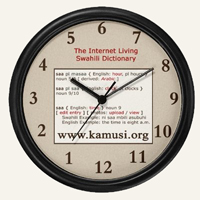 At our 7:00 in the morning it is 1:00 in the morning in Swahili time. At our 9:00 in morning it is 3:00 in the morning in Swahili time. At our 12 o’clock (noon) it is 6:00 o’clock in Swahili time. At our 3:00 o’clock it is 9:00 o’clock in Swahili time. At our 6:00 o’clock it is 12:00 o’clock in Swahili time. At hour 9:00 o’clock at night it is 3:00 o’clock in Swahili time. At our 12:0o o’clock at night it is 6:00 o’clock at night in Swahili. At our 3:00 in the morning it is 9:00 o’clock at night in Swahili time. At our 6:00 in the morning it is 12 o’clock in Swahili time.
At our 7:00 in the morning it is 1:00 in the morning in Swahili time. At our 9:00 in morning it is 3:00 in the morning in Swahili time. At our 12 o’clock (noon) it is 6:00 o’clock in Swahili time. At our 3:00 o’clock it is 9:00 o’clock in Swahili time. At our 6:00 o’clock it is 12:00 o’clock in Swahili time. At hour 9:00 o’clock at night it is 3:00 o’clock in Swahili time. At our 12:0o o’clock at night it is 6:00 o’clock at night in Swahili. At our 3:00 in the morning it is 9:00 o’clock at night in Swahili time. At our 6:00 in the morning it is 12 o’clock in Swahili time.
In Kenya, as stated above, they use the standard time system that we as Americans use and they also use Swahili time. How does anyone in Kenya, including all Kenyans, know which time system is being used if both systems are used?
For example, what if a person in Kenya was reading a newspaper which stated that the beautiful, talented and accomplished Rihanna arrived in Mombasa at 5:30 in the morning the previous day? How would the reader know whether that meant 5:30 in the morning in the standard time that most of the world uses or 5:3o in Swahili time which would be 11:30 in the morning in the standard time that most of the world uses?
Did the kissable and sensuous Rihanna arrive in Mombasa, Kenya at 5:30 in the morning or 11:3o in the morning?
Here’s another example: If while in Kenya I read that the best time to go fishing in Mombasa was around 8:00 at night does that mean the best time go fishing is around 8:00 at night in the standard time that most of the world uses or does it mean around 2:00 in the morning? 8:00 at night in Swahili time it is 2:00 in the morning in the standard time that most of the world uses.
The use of standard time and Swahili time in Kenya is not equipollent to use of standard time and military time in the United States of America. 1300 cannot be mistaken for anything but 1300 because there is only one 1300.
Kenya’s use of dual numeric date format (DD/MM/YYYY and MM/DD/YYYY) is analogous to, and worthy of comparison to, Kenya’s use of dual time/clock system.
If skeptics will agree that two different time/clock systems, often seemingly impossible to ascertain which system is being used, exist in Kenya then how can skeptics take the position that two different numeric date formats, often seemingly impossible to ascertain which format is being used, could not exist in Kenya and that it would impossible and unworkable?
Please exercise your free speech in the comments section below. There are no stipulations of political correctness on this blog. Speak your mind, give us your thoughts, both objective and subjective. Share your ideas, hunches, inklings or your expertise. Please provide recommendation and corrections if you spot errors in fact within the blog report. Lastly, remember that posting a comment is much like casting a vote, so please do so.

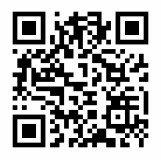
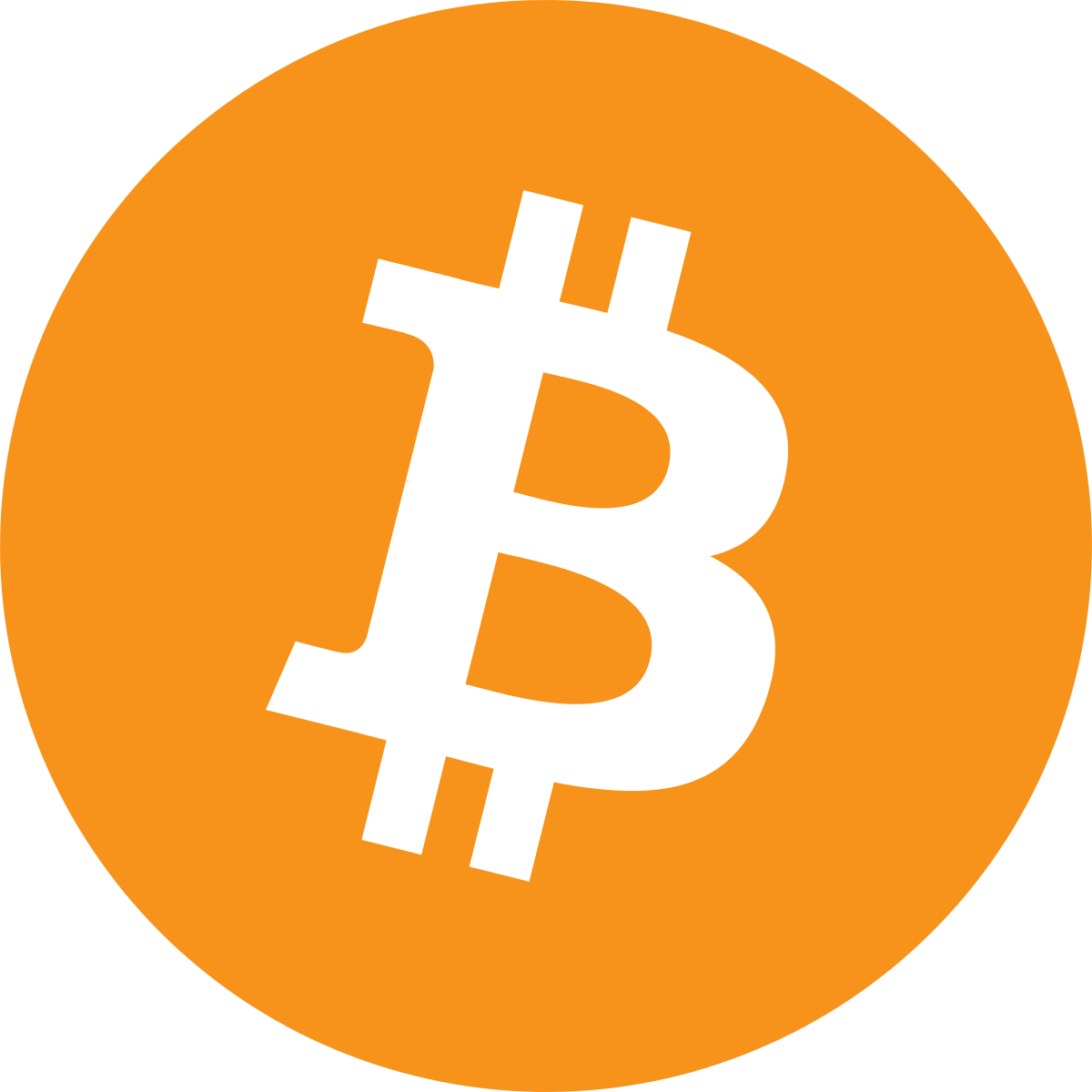
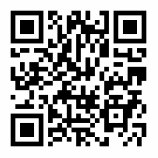

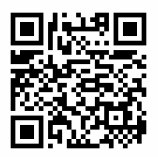

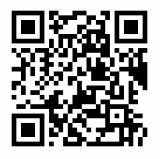

I posted an excerpt and link to the article on the Inspector Smith Forum under the thread:
The Date Format (M/D/Y) Used on the ‘LDS, Obama Kenyan BC’ is Authentic
http://www.wasobamaborninkenya.com/InspectorSmith/showthread.php/940-The-Date-Format-%28M-D-Y%29-Used-on-the-LDS-Obama-Kenyan-BC-is-Authentic
Italian tourists in Tanzania buy bus tickets which say the bus arrives at 4 am. The Italians arrive an hour early (3 am). At 4 am the bus did not arrive. By 7 am still no bus and the tourists are mad. About that same time some employees arrive and the Italians are upset and start shouting at them about the bus that never came and how it was raining and they’d been waiting and how the bus never arrived at 4:00 am and had still not arrived. The employees say that they do not understand. After a little more shouting from the Italians they,the Italians, are told that the bus arrives at 4 am in Swahili time (which would be 10:00 am in the standard time). The bus wasn’t scheduled to arrive for almost another 3 hours.
http://michiphotobooth.com/2012/01/25/swahili-time/
Foreigner in Tanzania misses class because “2:40” to her surely meant 2:40 in the afternoon.
Turns out it was Swahili time which in standard time was 8:40 in the morning:
“So, while attempting to schedule one of these visits, I encountered a pretty interesting cultural miscommunication. One of the teachers whose class we wanted to sit in on sent me a text message (SMS) saying her class was at 2:40. Of course, I took this to mean 2:40pm. Since this was only one of many visits I was scheduling, it did not occur to me until the day of our visit that that time could not be correct since schools are only in session until 2:00pm everyday. By the time I realized this it was already 8:30am or so, and shortly after my realization the teacher called me to ask if I was going to be there that day. When I asked her to clarify the time she said “Oh, I am in the class right now!” Turns out that when she said 2:40, she meant class was at 8:40am – i.e. six hours past the time she told me. This was really puzzling to me, but apparently there is a separate “Swahili” time and “English” time. While I and most of the world functions on “English” time, in some Swahili speaking nations they consider 1:00am to be one hour after the sun rises, which would correspond to what most people consider 7:00am, and 1:00pm to be one hour after the sun sets, which would correspond to what most people consider 7:00pm. So, the time they provide you might be six hours off, as was the case with the teacher I communicated with. Now that I know this, I try to clarify whether they mean “Swahili time” or “English time” time when I try to schedule meetings so that I won’t be six hours late or early!”
Professor Erin Wilkinson (American) couldn’t understand why she was “stood up” when she scheduled small business client appointments at 2:00pm and 4:00pm in Zanzibar and Tanzania.
She wasn’t aware of Swahili time:
http://zanzibaradventure.wordpress.com/
Tourists in Tanzania buy boat ticket which they thought was leaving at 8:00 pm:
“While we had thought that the boat would depart at 8:00 p.m (because it said 8:00 p.m. on our ticket), we were wrong. Our boat was going to leave at 2:00 in the afternoon. The time on our ticket was “Swahili time,” not “Western time.” They learned that in Swahili time, the day starts at sunrise (makes sense), which, at the equator does not change substantially during the year, so what we think of as 6:00 a.m. is considered 1:00 a.m. in Swahili time. To make matters even more confusing (at least for us), the people here keep their watches on Western time, but convert to Swahili time. So much for our mastery of Swahili.”
http://www.oocities.org/mimi_samuel/mikandani.htm
The ramifications of Swahili time in East African countries can sometimes even modify the actual DATE that events occur according to the following post:
http://everything.explained.at/Date_and_time_notation_by_country/
Excerpt:
East Africa
Time
In many East African languages, the start of the daily time system is at dawn, not midnight. Thus, what would be seven o’clock in the morning in English becomes one o’clock in the morning in Swahili and other East African languages. This also affects the date: the whole night is the same date as the preceding day. For example, Tuesday does not become Wednesday until morning breaks, rather than changing at midnight. – (bold emphasis added in above paragraph)
For multi-lingual speakers in East Africa, the convention is to use the time system applicable to the language one happens to be speaking at the time. A person speaking of an early morning event is, in English, would report that it happened at eight o’clock. However, in repeating the same facts in Swahili, one would state that the events occurred at saa mbili (‘two hours’).
The Luganda form, ssawa bbiri, is equivalent to the Swahili in that it means literally ‘two hours’.
Lucas,
I repeat, in order to be persuasive you need to find what is necessary to your position not what is possible (or even certain – but not transitive within your flow of events). You are however lucky because most obots can’t express this simple philosophical principle. But even when they don’t understand their minds do and the result is the deluge of ridicule you receive.
Let me make some examples:
The doctor’s Name stamp’s spelling must agree with Kenya’s national “The Medical Practitioners and Dentists Board”. This is necessary
My date stamp is MM/DD/YYYY and there are other Kenyan stamps in the same format. This is possible (and even certain) but not necessary (to affirm the document was stamped in Kenya)
There are Obama plats du jour in Mombasa. So I was in Kenya. This is possible (and maybe certain) but not necessary (for you to have been in Kenya)
The Date stamp must show a date compatible with the signing officer’s tenure. This is necessary.
This is me in “African sorroundings” in Barrio Villa Consuelo so I have been to Africa. This is possible but not necessary
I bribed the hospital staff. This is possible but not necessary
Now I remember: I was served by Othigo ! So she was the Chief Amin on the stamped date ! It is possible but not necessary (for you to have been there)
I still believe this read could improve your persuasion skills.
http://archive.org/download/howwethink000838mbp/howwethink000838mbp.pdf
it is a seminal text about understanding how the mind works. The link provides the full text. I am almost 30 years older than you and I have professionally dealt with human psychology so please consider my advice seriously. You need to improve your communication skills and you have the potential to do so.
Pingback: Dr. Conspiracy (Kevin Wayne Davidson) finally admits that Kenya uses two different numeric date formats (i.e., MM/DD/YYYY and DD/MM/YYYY). | Lucas Daniel Smith's Blog